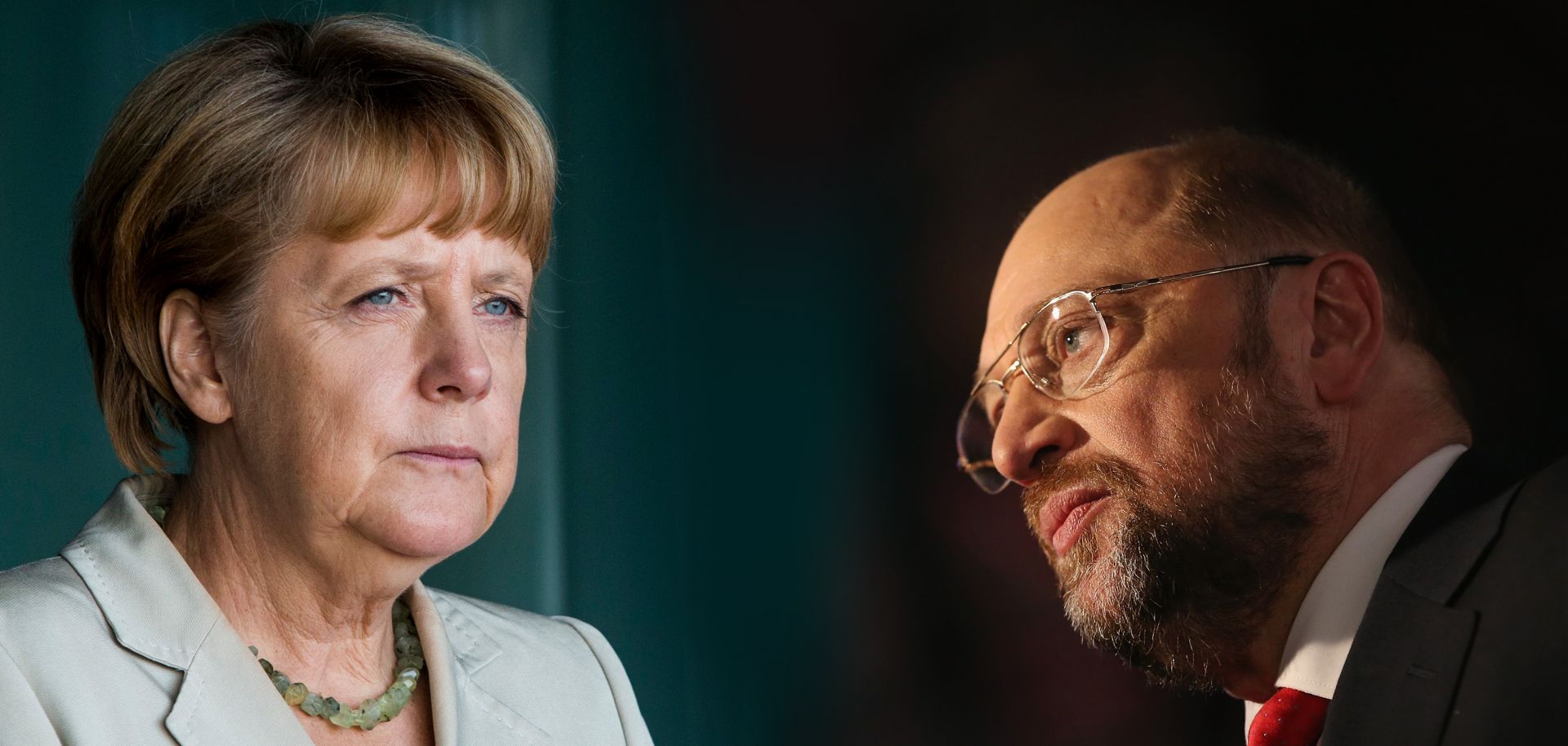ASSESSMENTS
The German Elections Matter — and Not Just for Germany
Sep 13, 2017 | 11:29 GMT

The Christian Democratic Union and the Social Democratic Party have worked together for the past four years, but neither wants to be in the same ruling coalition again.
(JOCHEN ZICK-POOL/SEAN GALLUP/Getty Images)
Highlights
- Germany's Sept. 24 election will likely result in one of the most fragmented parliaments the country has seen in decades.
- The country's two largest parties will try to avoid renewing their current coalition partnership, meaning smaller parties will play a big role in the formation of the next government.
- The ideological composition of the new administration will affect negotiations to reform the European Union, and when it comes to Southern Europe's proposals for reform, a center-right coalition would be more skeptical than a center-left coalition.
Subscribe Now
SubscribeAlready have an account?
